Moorland project resumes with helicopter deliveries
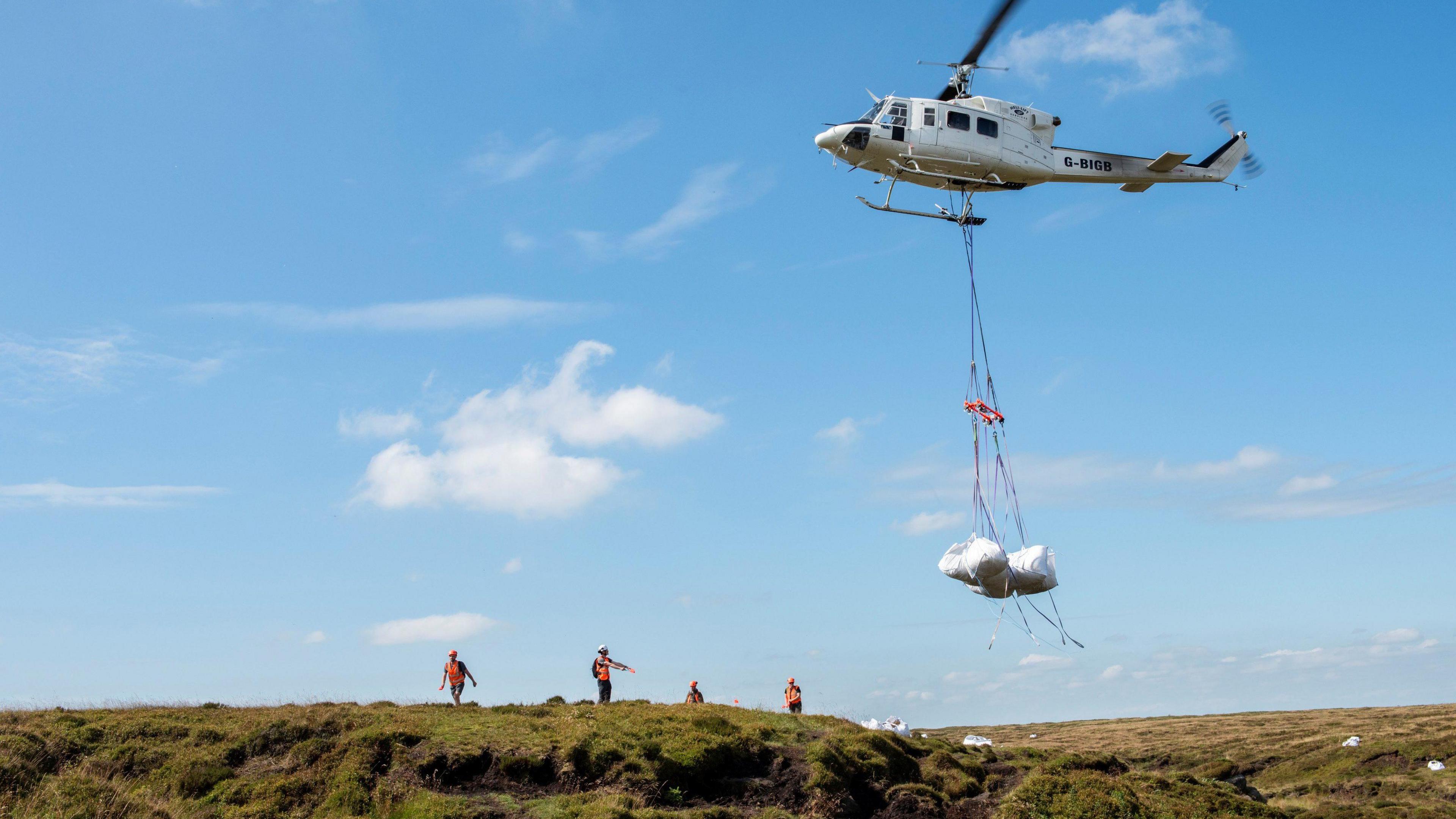
A helicopter delivering materials to help restore peatlands on Kinder Scout
- Published
Work to restore moorland at the Peak District's highest location has resumed with vital materials being delivered by helicopter.
The flights brought supplies to remote locations on Kinder Scout for a National Trust project at the National Nature Reserve.
The work will help restore 526 hectares of peatland to capture carbon and slow water run-off.
Work was temporarily paused due to ground-nesting birds' breeding season.
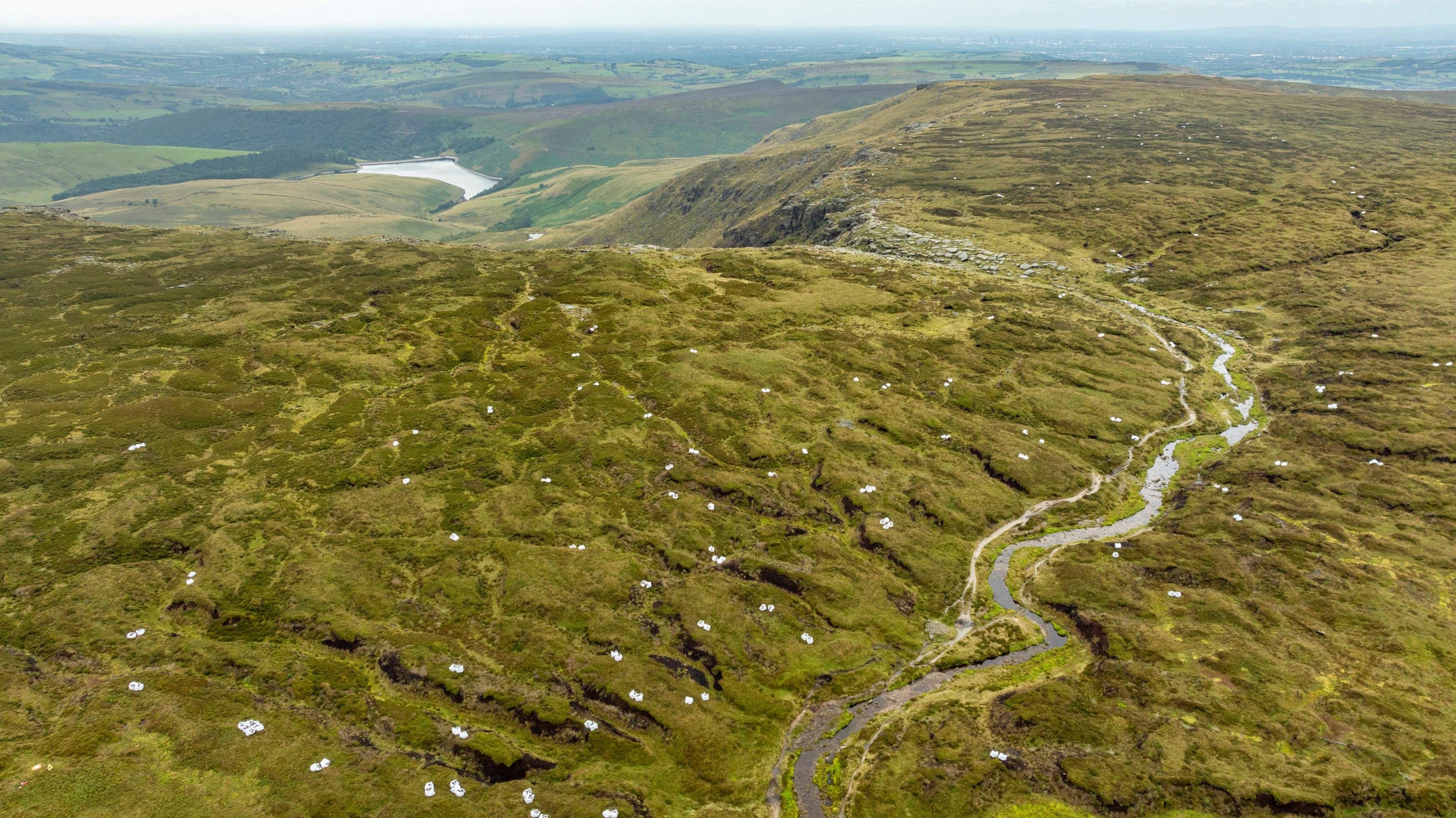
Bags of heather brash on Kinder Scout ready for the restoration of bare peat
The first helicopter airlifts carried heather brash - which acts as a mulch - lime, seed and fertiliser to some of the hardest to reach locations.
They will be used to stabilise areas of bare peat by temporarily lowering its acidity and creating the right conditions for moorland plants to grow, the National Trust said.
"Without helicopters we wouldn't be able to work in such remote and sensitive areas where the only other access is by foot," said project manager Phil Owen.
An earlier stage of the project saw sphagnum moss planted to act as tiny "speed bumps" for rainwater falling on the moors.
Instead of running down in a straight line, the water will be forced to weave its way more slowly, rather than arriving in streams and rivers at once.
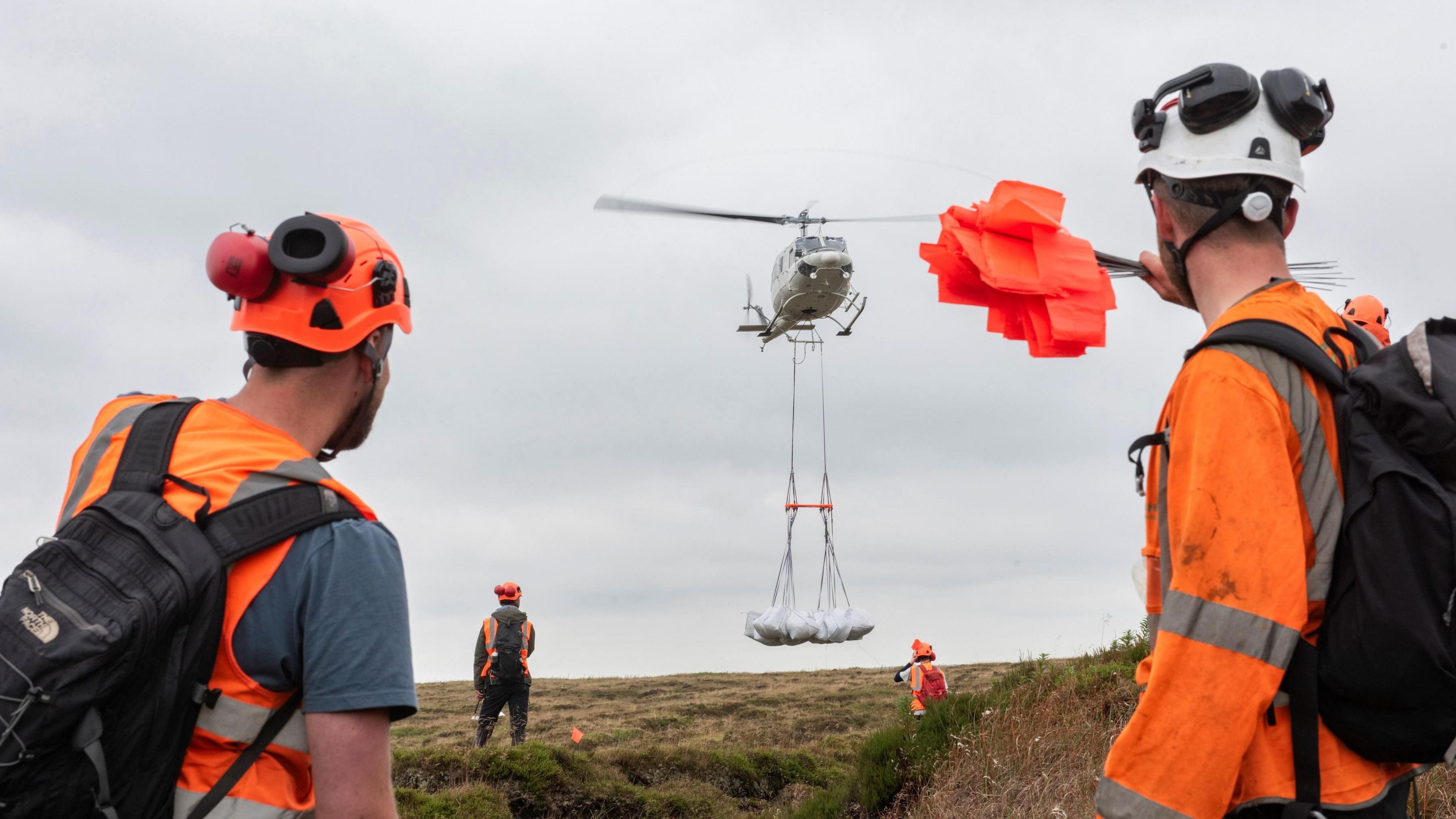
The team working on the Kinder plateau as part of the peatland restoration project
The restoration work encourages a mix of moorland plants like heather, bilberry, and cotton grass which in turn create habitat for birds such as golden plover, dragonflies, frogs and lizards.
The later stage of the project will involve the restoration of footpaths and work to reduce wider erosion.
The restoration work has been paid for with £1.86m from Natural England’s Nature for Climate Peatland Grant Scheme, £400k from the National Trust and £200k from landowner United Utilities.
The project is expected to be completed by 2025 and help the National Trust achieve its commitment to have all the degraded peatlands in its care under restoration by 2040.
Follow BBC Derby on Facebook, external, on X, external, or on Instagram, external. Send your story ideas to eastmidsnews@bbc.co.uk, external or via WhatsApp, external on 0808 100 2210.
Related topics
- Published8 May 2024
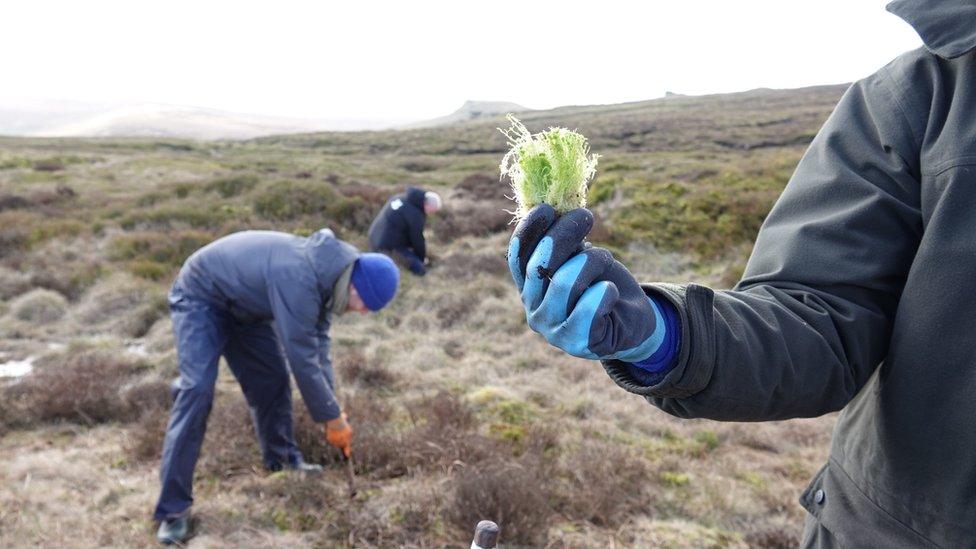
- Published16 November 2022
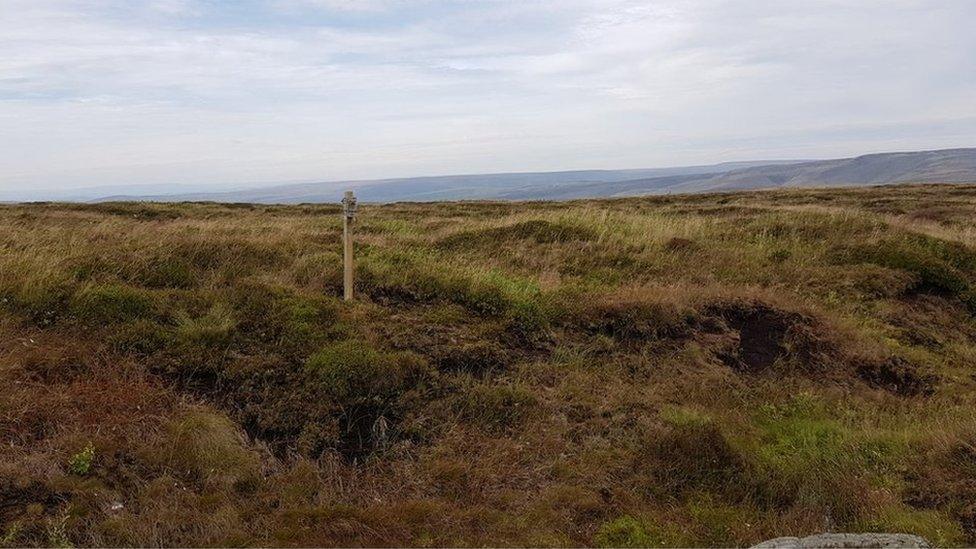
- Published2 April 2022
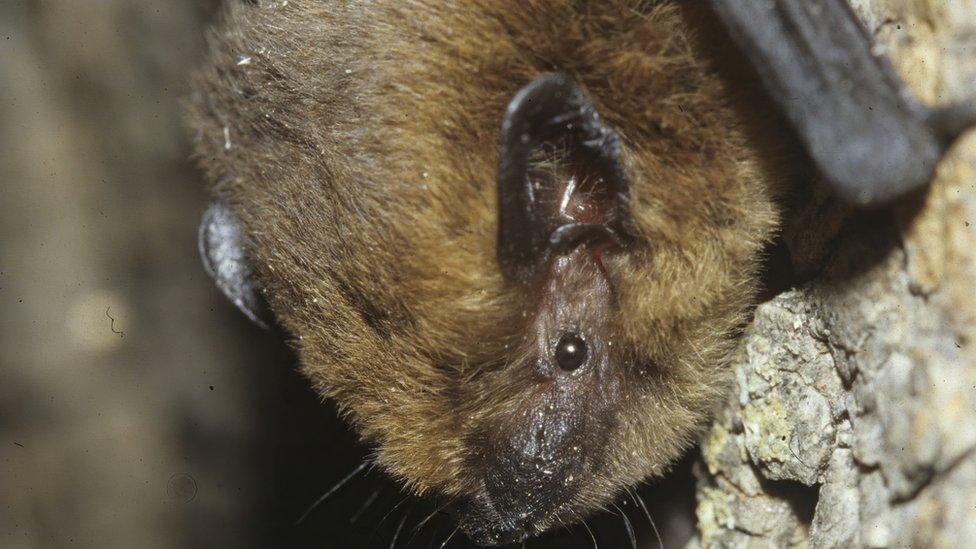
- Published3 September 2016
